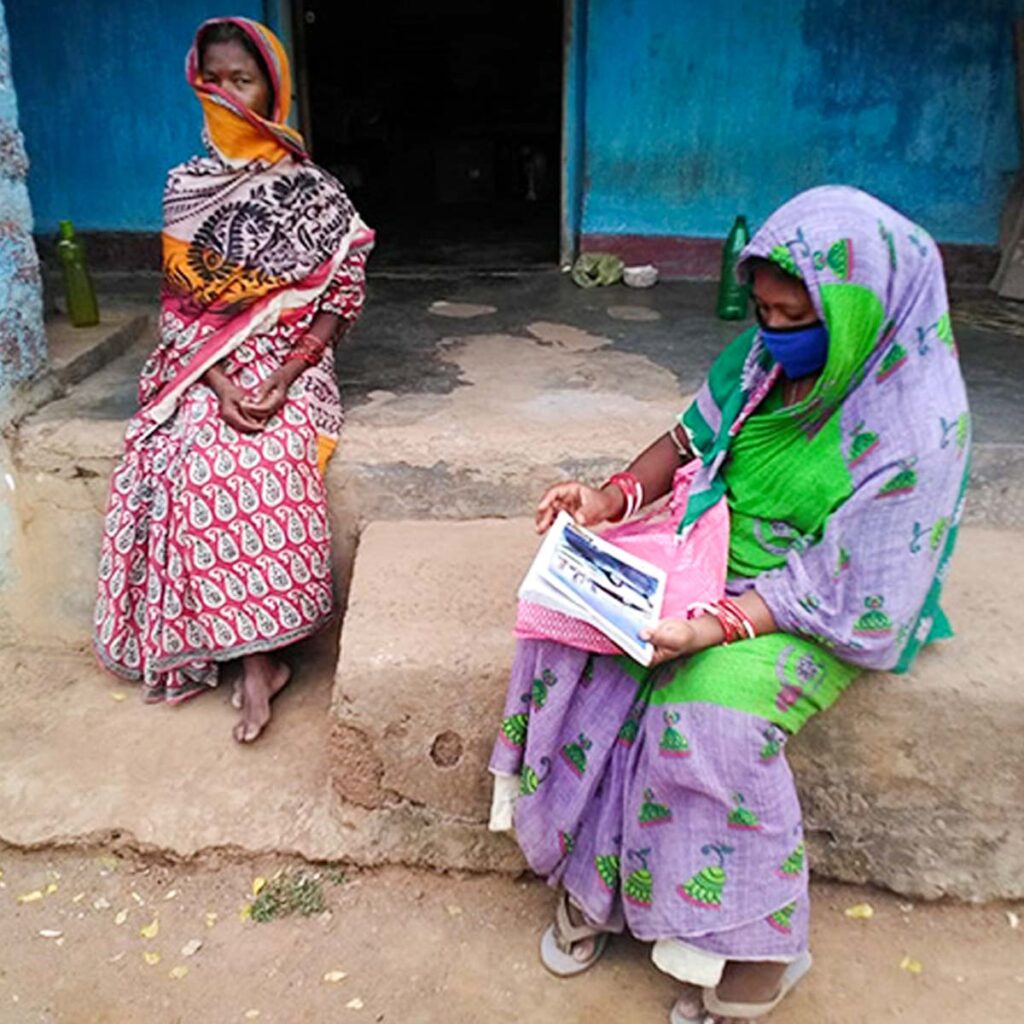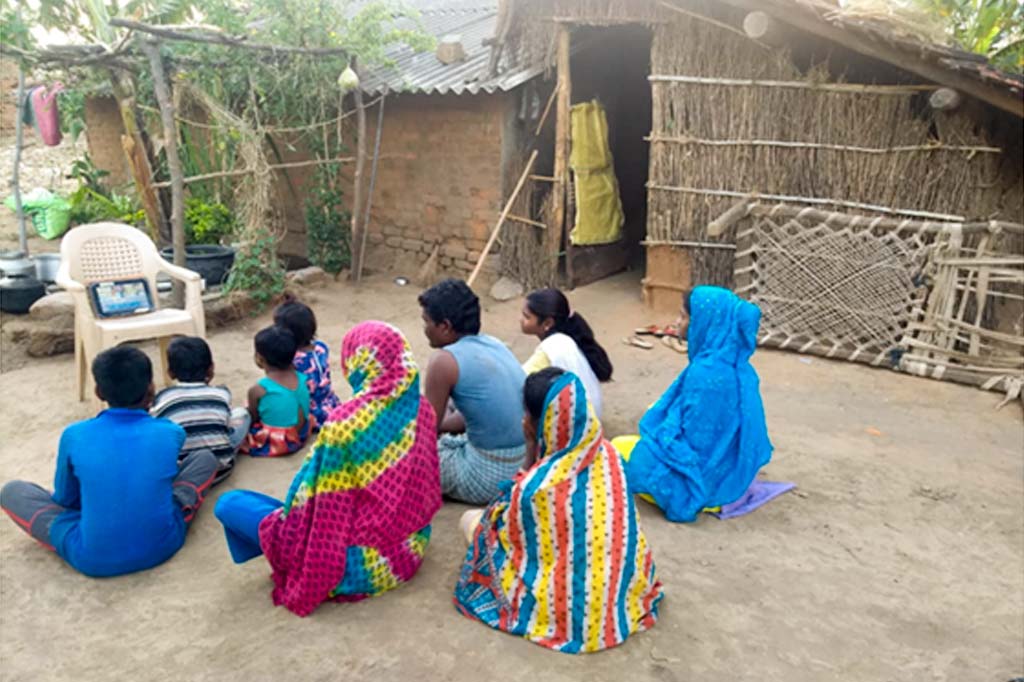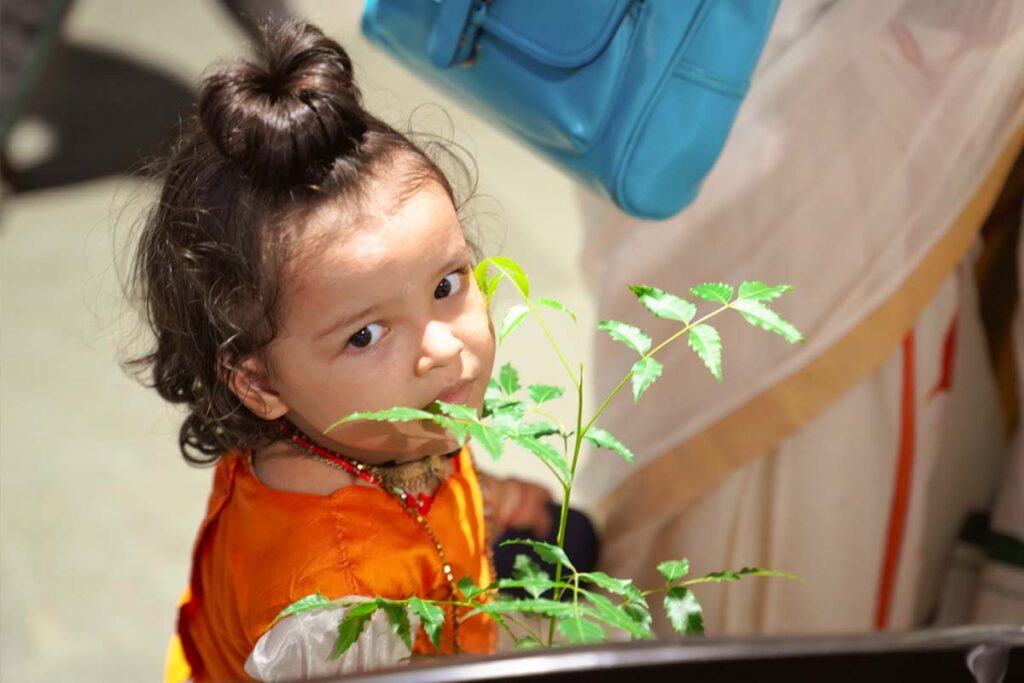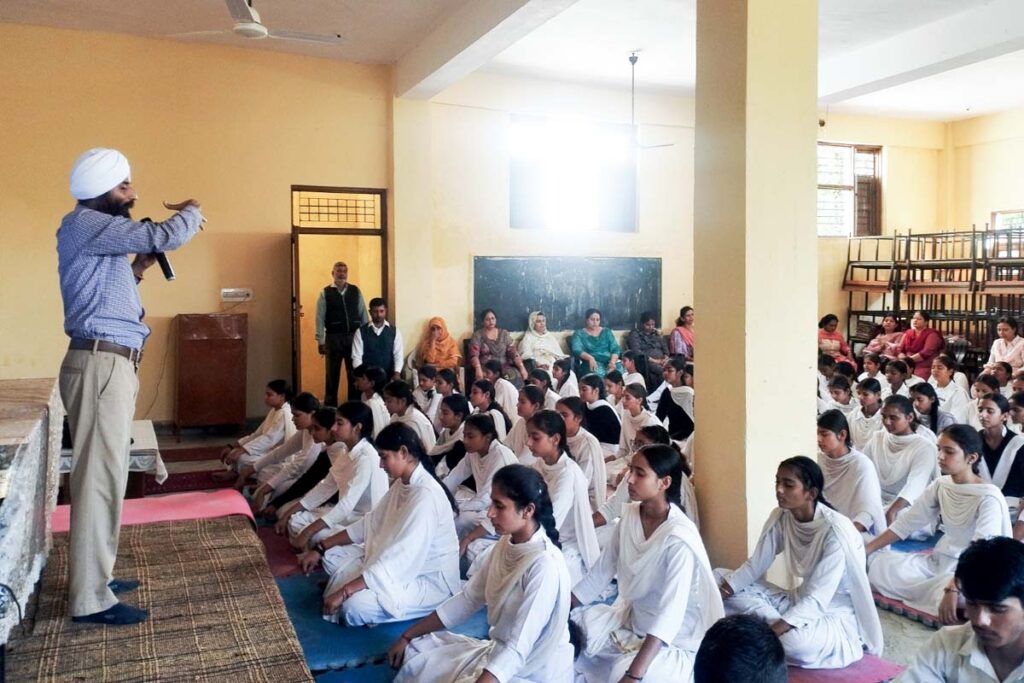At the basis of all Mata Amritanandamayi Math’s humanitarian efforts is the goal to ensure everyone has access to adequate healthcare, nutrition, safe drinking water and secure places in which to dwell. COVID-19 brought a state of emergency like never before.
In addressing the pandemic, India saw an immediate and crucial need for underprivileged people in remote tribal areas to be informed and given awareness regarding the disease. These populations usually lag behind in latest developments due to their remoteness and traditional ways of life. The panic and confusion over Covid only multiplied that factor.
Amrita Vishwa Vidyapeetham (Amrita University) is declared a Tribal Center of Excellence (Tribal CoE) by the Ministry of Tribal Affairs, Government of India, and the center quickly set to work on how to deal with Covid in tribal areas.
Amrita University’s Tribal CoE is mainly active in the states of Odisha, Maharashtra, Jharkhand, Chhattisgarh, Rajasthan, Tamil Nadu, Kerala and Madhya Pradesh—places where the risk of community spread was high. Migrant workers returning home from the cities was another serious concern, as they could act as Covid carriers from one region to another.
Thus, the threat of the coronavirus demanded a new set of rules and enforcements to prevent contagion and loss of life. In addition, it brought out the need for prevention of stigmatisation, prevention of violence against healthcare providers and prevention of neglect of the afflicted.
The main challenges were restricted movement due to the lockdown, low internet connectivity and poor electricity. However, the Tribal CoE was able to disperse awareness with the help of local village workers. A key tool was the use of mobile technology, especially tablets.

One of the first methods adopted was that of early awareness about COVID-19, which happened even before India’s lockdown started. On March 14th, 2020, materials were sent to village workers, and they dispersed the information through videos, demonstrations and discussions. Teachers gave awareness sessions while wearing masks, practised distancing and carried soap with them to wash hands before and after contact. Posters were put up in villages about handwashing and social distancing.
Many of the tribal people only speak their local dialects, so village workers also went door-to-door to connect directly with community members and translate the information. This included how Covid spreads, wearing masks and how to make them, proper handwashing, social distancing, personal hygiene, maintaining cleanliness of home and surroundings, and the harm of spitting in public places.
As the pandemic began to heighten, new approaches had to take effect. The Tribal CoE adopted the use of WhatsApp groups to send awareness videos and images to all village workers. The workers could then forward these to everyone on their contact lists, and this ensured diffusion of relevant information in an exponential manner.
When the lockdown started on March 24, 2020, one of the most dire circumstances was that of India’s migrant workers who were forced to return to their villages. Most of them travel to urban centers to work as daily-wage earners, especially in the manufacturing and construction sectors. But as employers shut down their businesses, they also forced the workers into the streets with little money, food or water.
On the other side of the dilemma, the issue of migrant workers returning to their homes posed a threat to villagers, who at first did not know what to do about them. There were instances when the returning migrants tried to run away from the village as other villagers contacted the local police.
Village workers were given information to share with villagers regarding the right course of action to bring family members back home, and the Tribal CoE connected them to the respective authorities like the local police station, ward members and local government officials.
Workers also distributed awareness about treating the migrants with compassion and respect. In the tribal villages of Rajasthan, Chhattisgarh, Odhisha, and Jharkhand, returning migrants were taken care of by the local government authorities. They were quarantined in local schools, which were empty due to the lockdown, and government facilities.
Another serious challenge the fear of Covid created was rage and unruly behavior by villagers to healthcare workers who were not from their communities. Villagers did not want them to enter, as they were concerned that they would carry the virus. Yet, the healthcare workers were coming to protect them from Covid.
The Tribal CoE sent their village workers instructions to let the villagers know they could trust the healthcare workers and should give them respect. The healthcare workers were coming with vital information to save lives. This helped calm community members down and paved the way for healthcare workers to take the necessary steps.
Overall, the Tribal CoE was able to reach 18 villages with a total of 2,199 households and a combined population of 10,958. It is estimated that the actual spread of the information is exponentially more, due to the use of social media to disperse it to everyone on each person’s contact list.
The Tribal CoE is a multidisciplinary center at Amrita University that includes AmritaCREATE, the School of Ayurveda, the Department of Community Medicine, and the Department of Food Science and Nutrition.






